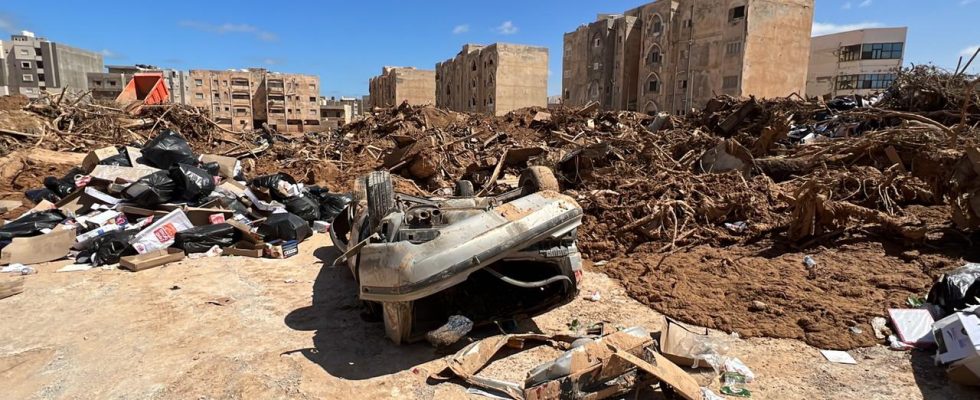After the severe floods, the situation in Libya is catastrophic. But politicians and military officials are primarily concerned with promoting themselves – and preventing criticism.
Images of the rescue work in Darna, Libya, are playing in a continuous loop on Arabic news channels: soldiers from Khalifa Haftar’s troops can be seen, in particular, recovering rubble with residents of the city. Haftar is the strong man in eastern Libya. He’s in control and he wants to show it.
Thousands of people have died from the floods – large parts of the city of Darna, which has a population of 100,000, were swept into the sea by the falling water. Hopes of finding survivors are minimal, even though international relief efforts have begun.
Apparently 300 people saved
And yet, yesterday afternoon, the Prime Minister of the internationally recognized government, Abdulhamid al-Dbeibah, wrote on Platform X that more than 300 people were rescued after cell phone networks were restored. There are more than 13 children among those rescued.
However, Dbeibah is based in Tripoli, more than 1,300 kilometers away from the disaster area. From there, residents and local helpers continue to send rather desperate messages – like this man on Facebook: “We need equipment and support. We are in a crisis situation, so we need help coordination and not chaos. Otherwise we risk an environmental catastrophe. “
Bodies wash up on the shore
What the man fears is the spread of epidemics. Bodies are still washing up from the sea in Darna and in places further east on the coast. The aid organization Doctors Without Borders has announced that it will hand over 400 body bags for the deceased and 200 medical kits for the treatment of the wounded to the Libyan Red Crescent in Darna.
In the evening, relief supplies from the Technical Relief Agency also arrived in Benghazi, eastern Libya. Tents, camp beds, water filters and power generators, among other things, were transported to the disaster area in two Bundeswehr aircraft.
Unctuous words from politics
While many residents of Darna no longer have a roof over their heads and do not know whether their family members are still alive, the battle for the sovereignty of interpretation and international perception has begun among the competing governments in the country.
Politicians like Parliament Speaker Aguilah Saleh shy away from uncomfortable truths. The 79-year-old Saleh is a confidant of General Haftar; he was already one of the puppet masters in Libya during Muammar al-Gaddafi’s time. In his speech to parliament, he did not address criticism – for example, that the dams above the city of Darna were dilapidated and had not been maintained for decades. Instead, he tries to use unctuous words, speaking of predestination and fate and praying to God to remove sadness from the hearts of Libyans.
“There were oversights and Neglect”
For parliamentarian Ali al-Takabali, Saleh’s words are excuses: “The problem is that he didn’t say whether parliament would hold those responsible accountable. There were omissions and neglect. Many international media say that too.”
Khalifa Haftar apparently wants to closely monitor what the international media reports directly from Darna. He likes the images from Arabic satellite channels, but he makes it difficult for Western journalists to access the crisis area.

